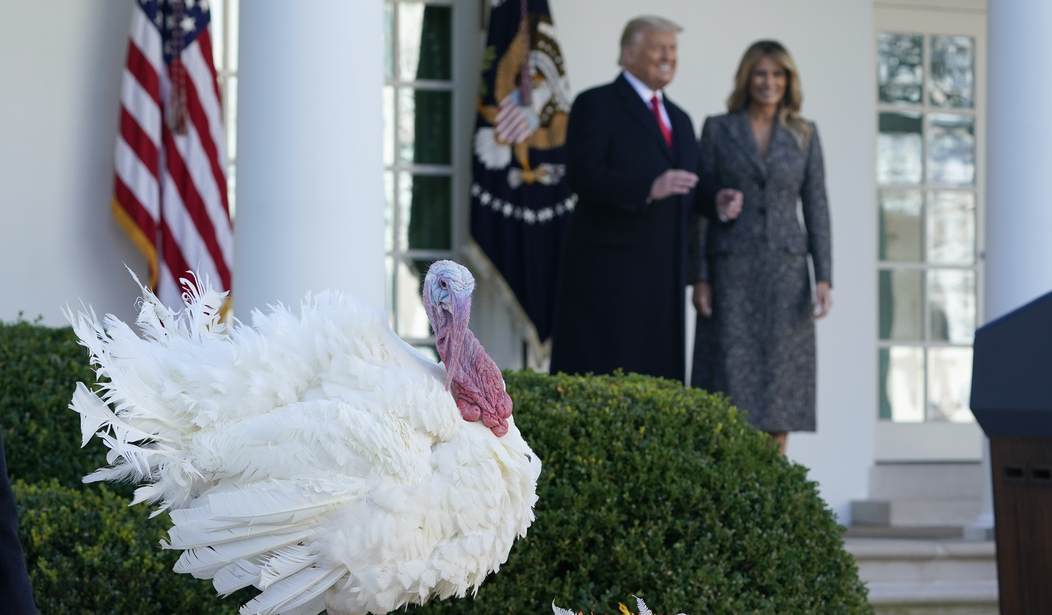This year hasn’t been easy. As the pandemic has dragged on, Americans have continued to face adversity in almost every aspect of their lives. People continue to suffer from COVID-19; many of us have lost loved ones. And now our country is facing sky-high inflation and a supply chain disaster, both of which threaten to make the holidays more expensive and more frustrating than ever before.
That all makes Thanksgiving a little bit more difficult than usual. Every year, Americans get together with family and friends to celebrate and give thanks. But do many of us really feel gratitude for the way things are going in our lives? How can we give thanks for the hardship we face?
But here’s the thing: times of adversity like these are precisely when we need gratitude most. And they are exactly what gratitude is for.
America is no stranger to adversity. The fourth Thursday of November was first declared a holiday of thanksgiving by President George Washington in 1789 — a time of great tumult in American history. We were recovering from the Revolutionary War, building a new republic, and combatting everything from civil unrest to economic hardship. And when President Abraham Lincoln made Thanksgiving a permanent U.S. holiday in 1863, it was right in the middle of the Civil War, America’s bloodiest and most devastating armed conflict.
Our Founding Fathers and great leaders understood that gratitude mattered in the face of adversity. Giving thanks for what we have, celebrating the people and the things God has given us, is essential to human flourishing. We handle hardship best, as individuals, families and as a society, when we do not lose our sense of appreciation and gratitude.
There are a lot of reasons for that. One of them is that gratitude is an emotion that elevates us, and giving thanks ennobles us. As G.K. Chesterton put it, “I would maintain that thanks are the highest form of thought; and that gratitude is happiness doubled by wonder.” Giving thanks is a powerful act; it reorients us around what matters most, and helps to set us free from the burdens of stress, fear, doubt and worry.
Recommended
But gratitude is also an important part of living the life of faith. Since the time of its founding, America has been a nation of religious believers. And Christians above all should see in gratitude a way of honoring God and following in the footsteps of their savior.
Scripture abounds with examples of and admonishments to gratitude. In 1 Thessalonians 5:16-18, Paul commands us to “rejoice always, pray continually, give thanks in all circumstances; for this is God’s will for you in Christ Jesus.” In Colossians 3:15, he tells us to “let the peace of Christ rule in your hearts, to which indeed you were called in one body. And be thankful.” And the Psalms, of course, are often some of the most heartfelt and beautiful expressions of gratitude you can find anywhere in human history.
Intentionally giving thanks is more than just a way to handle adversity; it is our way of growing through it, becoming humbler, better and stronger in service to the values that shape and define us.
Gratitude is also beneficial at the emotional, psychological and physical level. Research amply suggests that gratitude improves our physical, mental and emotional health. Intentional gratitude has also been proven to reduce aggression and help us to be kinder and more empathetic. Gratitude can make all the difference between a hostile and unhappy Thanksgiving, and a joyful one.
There’s no point in trying to minimize the adversity of the last year; things might even get worse before they finally start to get better. But by keeping our hearts set on the things we can still give thanks for, and by finding ways to practice gratitude in spite of our hardships, we can keep that adversity from controlling and commanding us.
America has always been a beacon of hope and freedom to the world. Our gratitude won’t fix the problems we’re facing today, but it can make sure we face them well — as befit citizens of the greatest country on earth.
Timothy Head is the executive director of the Faith & Freedom Coalition.

























Join the conversation as a VIP Member